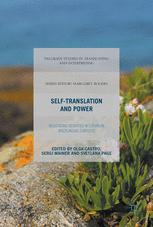

Most ebook files are in PDF format, so you can easily read them using various software such as Foxit Reader or directly on the Google Chrome browser.
Some ebook files are released by publishers in other formats such as .awz, .mobi, .epub, .fb2, etc. You may need to install specific software to read these formats on mobile/PC, such as Calibre.
Please read the tutorial at this link: https://ebookbell.com/faq
We offer FREE conversion to the popular formats you request; however, this may take some time. Therefore, right after payment, please email us, and we will try to provide the service as quickly as possible.
For some exceptional file formats or broken links (if any), please refrain from opening any disputes. Instead, email us first, and we will try to assist within a maximum of 6 hours.
EbookBell Team

4.3
68 reviewsThis book investigates the political, social, cultural and economic implications of self-translation in multilingual spaces in Europe. Engaging with the ‘power turn’ in translation studies contexts, it offers innovative perspectives on the role of self-translators as cultural and ideological mediators. The authors explore the unequal power relations and centre-periphery dichotomies of Europe’s minorised languages, literatures and cultures. They recognise that the self-translator’s double affiliation as author and translator places them in a privileged position to challenge power, to negotiate the experiences of the subaltern and colonised, and to scrutinise conflicting minorised vs. hegemonic cultural identities. Three main themes are explored in relation to self-translation: hegemony and resistance; self-minorisation and self-censorship; and collaboration, hybridisation and invisibility. This edited collection will appeal to scholars and students working on translation, transnational and postcolonial studies, and multilingual and multicultural identities.